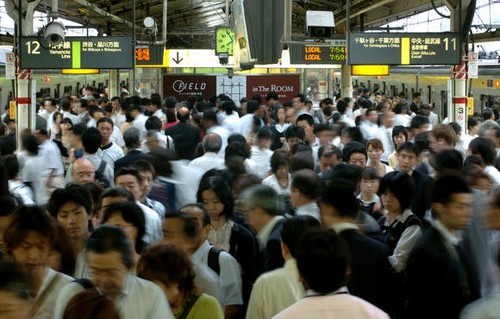 Rush hour in Tokyo means packed trains and platforms. (Photo: Reuters) Rush hour in Tokyo means packed trains and platforms. (Photo: Reuters) |
More than 930 companies, organisations, and government offices, many of them major agencies like the Tokyo administrative agency, Suntory Holdings, Ajinomoto Company, and Japan Times have responded to Telework Day.
At the headquarters of Calbee in Tokyo, 270 of its 330 employees worked from home.
5,800 employees - more than half of the total - of the NTT Data Corporation registered to take part in the program.
Tokyo Mayor Yuriko Koike said Japan needs a new working style with less pressure to help people enrich their lives.
The telework initiative aims to reduce traffic jams ahead of the 2020 Olympics and Paralympics in Tokyo. Some 40 million visitors from around the world will come to the capital or those events.
The idea was inspired by a teleworking effort at the time of the 2012 London Olympics.
At that time more than 80% of the companies in London responded to the appeal.
But Japan’s challenge is bigger than London’s because Tokyo is home to 14 million people and is located in the middle of a residential area of more than 34 million people, many of whom commute to the city center for work every day.
Takashi Kozu, president of the Ricoh Institute of Sustainability and Business, said that when the Olympics start it will be hard to get to work, so Japan is conducting this campaign as an experiment.
But the upcoming Olympics are not the only reason for the experiment. The long-term goal of this campaign is to create more humane working conditions in Japan. In the past, working long hours was considered a virtue, but this thinking will not hold up in the future. Some companies are starting to realize that long, inflexible hours of work actually keep labor productivity low.
A survey last year showed that only 13.3% companies in Japan allowed their workers to work at home.